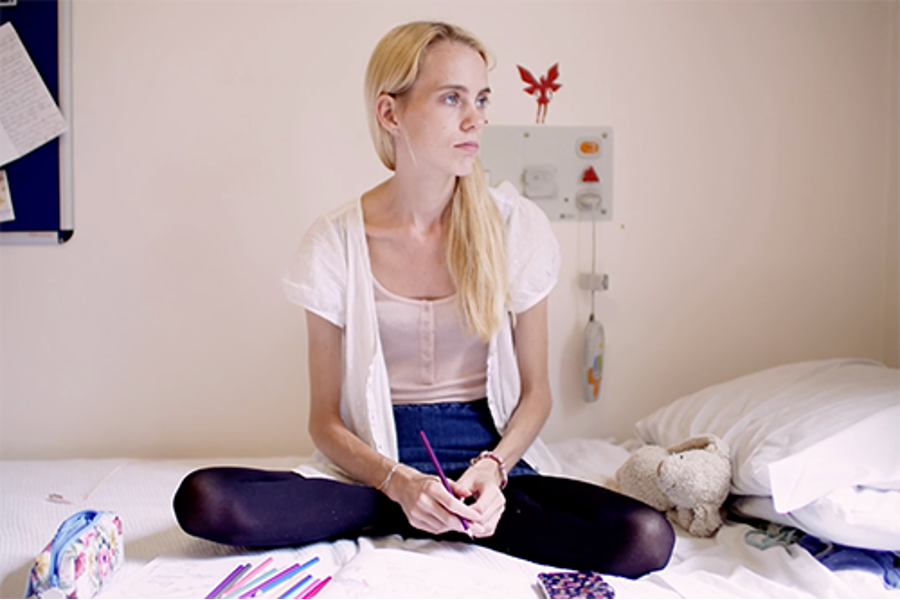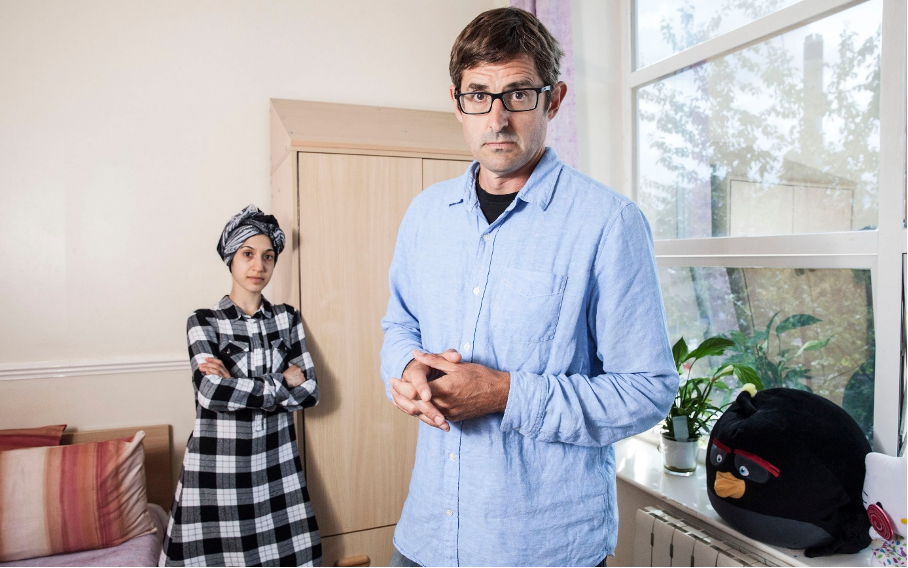Informator uniwersytecki
numer 020
Marzec 2023
★
6
Talking to Anorexia
This time, Louis Theroux embeds himself in two of London's biggest adult eating-disorder treatment facilities: St Ann's Hospital and Vincent Square Clinic. He meets women of all ages and at various stages of their illness, accompanying them through an enforced daily routine of scheduled eating, weigh-ins and group therapy sessions.

Anorexia nervosa — often simply called anorexia — is an eating disorder characterized by an abnormally low body weight, an intense fear of gaining weight and a distorted perception of weight. People with anorexia place a high value on controlling their weight and shape, using extreme efforts that tend to significantly interfere with their lives.

Anorexia isn't really about food. It's an extremely unhealthy and sometimes life-threatening way to try to cope with emotional problems. When you have anorexia, you often equate thinness with self-worth.
Anorexia, like other eating disorders, can take over your life and can be very difficult to overcome. But with treatment, you can gain a better sense of who you are, return to healthier eating habits and reverse some of anorexia's serious complications.
The physical signs and symptoms of anorexia nervosa are related to starvation. Anorexia also includes emotional and behavioural issues involving an unrealistic perception of body weight and an extremely strong fear of gaining weight or becoming fat.
It may be difficult to notice signs and symptoms because what is considered a low body weight is different for each person, and some individuals may not appear extremely thin. Also, people with anorexia often disguise their thinness, eating habits or physical problems.
In the film we meet several young women engulfed by the illness, being treated with some positive effects, leaving the treatment unit, denying the need to be cured, and asking for help. We observe the staff – doctors, psychotherapists, nursing staff and dieticians who patiently accompany the hopeless cases. Months pass, years pass, prospects of good life pass – but they all need a helping hand, someone who will always be there with love and acceptance.
Piotr Flieger
Department of Foreign Languages
Did you like it?
Check Piotr's previous articles:
© 2022 Centrum Symulacji Medycznej UM w Lublinie







